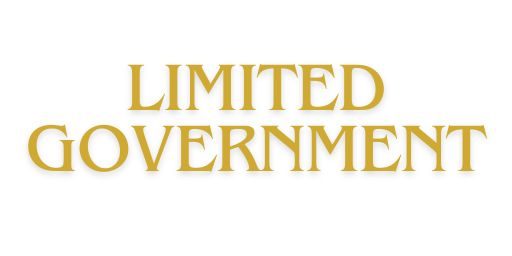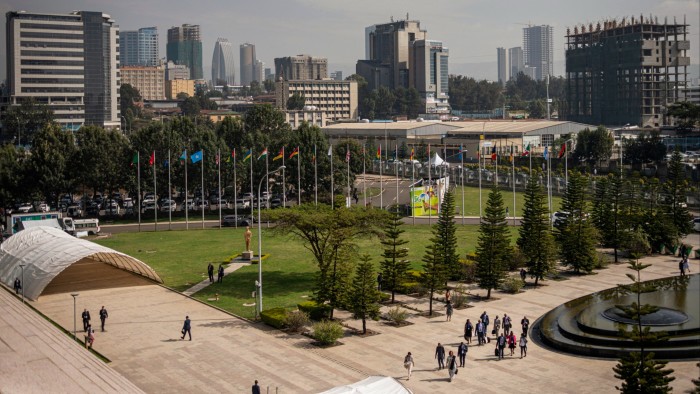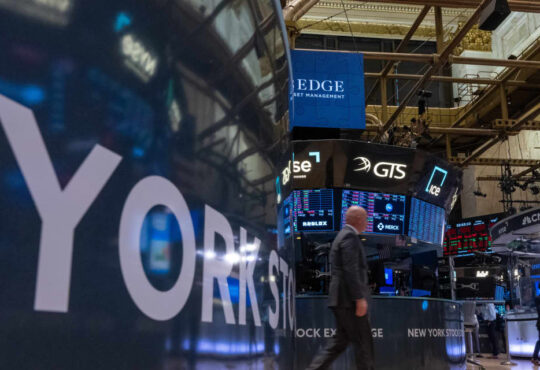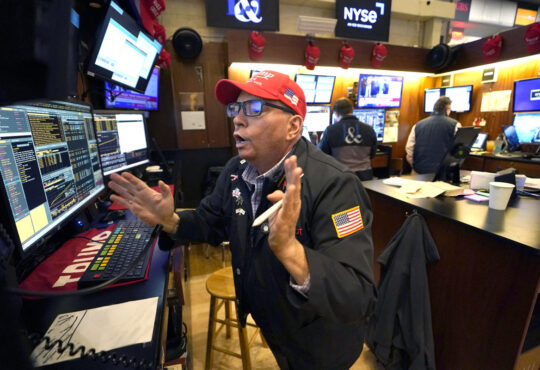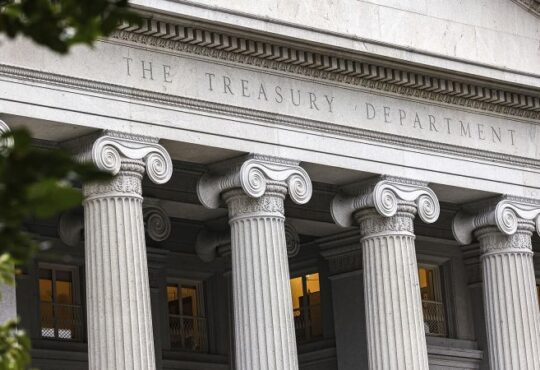On the newly minted trading floor of a high-rise building in Addis Ababa’s financial district, a bell stands ready for the launch this month of the first securities market in Ethiopia since the last days of emperor Haile Selassie.
“This isn’t just a milestone, it marks a new Ethiopia,” said Tilahun Kassahun, chief executive of the new Ethiopian Securities Exchange.
Outside is a 50-metre tall pillar with a red star on top, built during the Marxist Derg regime that toppled the emperor and ushered in decades of state-led economic policies that are only now being dismantled.
The new stock market is part of Prime Minister Abiy Ahmed’s efforts — interrupted by a ghastly two-year civil war that killed at least 600,000 people before ending in late 2022 — to open up the economy of Africa’s second-most populous nation.
The most important reform, investors and lenders say, has been the liberalisation of the foreign exchange regime, a precondition of a $3.4bn IMF bailout — the Washington-based lender’s largest ever concessional programme — which was approved by its board in July.
“Despite the noise, we persisted in implementing reforms,” said Eyob Tolina, the state minister for finance, adding that the government had achieved most of what it had set out to do. “It might just be easier to tell you what has not changed.”
Over the next four years, economic officials have set themselves the goal of securing up to $27bn in financing and investment, equivalent to 16 per cent of Ethiopia’s GDP, from the IMF, World Bank, China, the United Arab Emirates and others.
That would ease a foreign exchange crunch and help fund reconstruction and restructure debt after Ethiopia defaulted in December 2023.
As part of efforts to catalyse a domestic equity market, in a modest start the government will float 10 per cent of the state-owned Ethio telecom, one of the largest mobile operators in Africa.
Aside from the capital market, the government has already moved to implement conventional monetary policy and raise tax revenues, some of the lowest on the continent, and float the currency. In late December, it also opened the banking sector to foreign investors, long a taboo in the state-controlled economy.
“They are not going back to the old system,” said a senior economist in Addis Ababa, adding that the government was “so broke” it had no choice but to push through with liberal reforms designed to attract investors.
“Will these reforms solve all of Ethiopia’s problems? No, not at all,” said another economist who follows the country closely. “There will still be issues with bureaucracy, corruption, property rights and security.”

Abiy initiated pro-market reforms after taking office in 2018. But the outbreak of civil war with the Tigray People’s Liberation Front in 2020, and accusations of atrocities by the warring sides, damaged his standing with donors who froze budgetary and financial support. Washington punished Addis Ababa by ending Ethiopia’s tariff-free access to the US, hurting a growing garment sector.
Before civil war broke out, Ethiopia, one of the poorest countries in the world, had grown at about 10 per cent annually for 15 years, according to World Bank data.
Government officials said that even during the war, which was estimated to have cost more than $28bn in damage and lost output, the economy continued to grow at 6 per cent.
Advisers said that, to the extent the war slowed the liberalisation process, it was now back on track. Ahmed Shide, finance minister, predicted the economy would grow at 8.4 per cent in the fiscal year ending in July 2025, more than double the expected sub-Saharan Africa average.
The IMF agreed to its new package shortly after Abiy gave the green light to float the currency.
Mamo Mihretu, the central bank governor, said he called up the presidents of all Ethiopian banks in late July and told them: “From now we will leave the exchange rate to be determined by the market forces” — a shock after decades of tight controls.
The following morning, Ethiopia floated its currency in what Mamo called “the most consequential economic reform” in the country’s history, comparing it to the Chinese and Indian economic overhauls of the 1970s and 1990s respectively.

Foreign reserves have since tripled to about $3.6bn, easing chronic shortages that had been one of the main complaints of investors. That allowed companies such as Dangote Cement, Heineken and Coca-Cola to begin repatriating profits long trapped in the country, said officials.
The birr has since fallen from an official exchange rate of 57 to the dollar to about 125. The IMF said the spread between the formal and parallel market had narrowed to “low levels” while the “supply of foreign exchange is picking up”.
Officials said the continuation of subsidies, including on edible oil and petrol, had helped prevent imported inflation, which the central bank estimates will fall from 30 per cent in December 2023 to 15 per cent by the end of 2025.
Charlie Robertson, head of macro strategy at FIM Partners, said the devaluation was “handled well” and that most prices were already being set in the parallel market.
Still, many ordinary Ethiopians complain about the high cost of living at a time when about 5.5mn people are in need of humanitarian food assistance, according to the World Food Programme. One donor predicts the devaluation will push inflation back up to 25 per cent before it goes down again.
Some non-governmental organisations have been suspended and the government has stifled a full assessment of real poverty levels, say critics. Despite years of growth, Ethiopia remains poor, with a per capita GDP of just $1,020 at market prices.
Ethiopia has a long way to go before it resembles anything like a fully liberal economy, the donor said. It still “looks like a post-Soviet transition economy”.
As well as doubts about how quickly Ethiopia can enact genuine liberal reform, security remains the biggest concern for investors, as violence continues both in the Oromia and, especially, Amhara regions. Investors “hear about these conflicts and cannot even leave the capital”, said an adviser to foreign companies.
Abiy’s quest to secure Red Sea access — a 1993 split with Eritrea left it landlocked — has also inflamed tensions with neighbours Eritrea and Somalia. That has raised fears of further regional conflict, an additional concern for potential investors.
Mamo, the central bank governor, does not deny the scale of challenges ahead. “But the most difficult part of the reforms is done,” he said.
